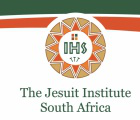South African Reflection: Learning from the 2016 elections

To the African National Congress last week must surely feel as, at worst, the rumour of defeat to come, at best a loud political wake-up call. Other parties need to take note too.
Everyone knew the ANC would retain Durban and Bloemfontein without serious opposition, just as everyone assumed the Democratic Alliance would hold onto Cape Town. What was discussed were Johannesburg, Tshwane (Pretoria) and Nelson Mandela Bay (Port Elizabeth) metropolitan areas. All the pundit predicted close polls, with ANC majorities slashed substantially, with some even suggesting 'hung' councils.
The results - in effect a DA victory in Port Elizabeth (though needing a small number of coalition partners to secure firm control) and hung councils in Tshwane and Johannesburg - probably exceeded a realistic estimation of the DA base of support. Clearly sections of the black community, most likely parts of the middle class in the big cities, have switched to the DA this time. Port Elizabeth is a particular prize to the DA, since it is seen as ANC heartland. However one should note significant numbers of minority voters there, who elsewhere tend towards the DA. Lest the DA gets smug and rests on its laurels it should note that such a protest vote does not necessarily mean a new cadre of party faithful.
Speaking of things of a protest kind, the results also suggest what many have thought: that the Economic Freedom Fighters may have far less actual support than their own hype assumes, and is more of a protest movement with some of its members in public office than a party the average voter sees as capable to share in government. If the EFF is to grow, it needs to articulate clearer programmes than just being anti-ANC and prove itself in practical governance. The need for coalitions in metros gives EFF such an opportunity. If it takes said opportunity their performance will deeply affect how voters see them in future.
For a party that believes in a modern day version of Louis XIV's dictum - "L'etat, c'est moi" [I am the state] - losing ground must have been devastating, not least for city councillors who will now need to find a job. In a one party dominant democracy like ours, any weakening political power for the rulers feels like a cross between an imminent revolution and the end of the world -even Jesus' return. Obviously the ANC can find ways of reclaiming lost ground - coalition-building with other parties in the short term. National government might even meddle with councils under opposition leadership, creating ways to obstruct their effectiveness.
Or, in the long term, the ANC might accept that they lost significant ground in 2016 because of their own local and national administrative incompetence, short-sighted policies that people no longer like, and because growing numbers of South Africans are sick of the corrupt hi-jinks of the ruling faction in the Movement. They might accept that some policies, practices and more than few comrades in high places need to be changed.
Follow the Jesuit Institute on twitter @JesuitInstitute
















